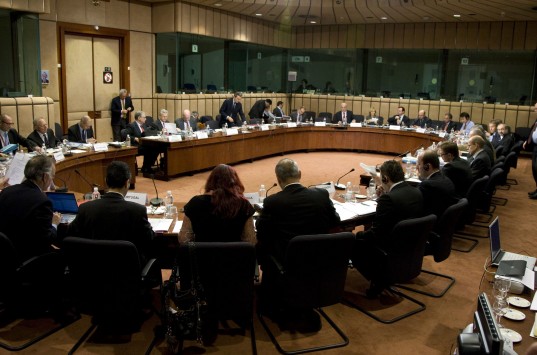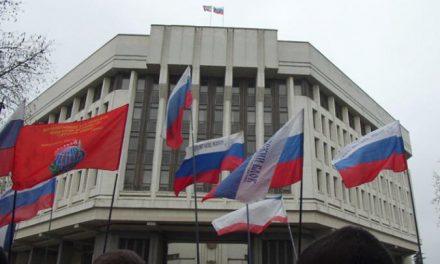Officials Say Greece’s Creditors Concerned Precautionary Credit Line Insufficient to Secure Finances
By Gabriele Steinhauser and Viktoria Dendrinou, Wall Street Journal
BRUSSELS—Some of Greece’s international creditors are worried that a precautionary credit line might not be enough to secure the country’s finances this year and that it might instead need new loans from the currency union’s bailout fund, three European officials said Friday.
These concerns were expressed at a meeting of senior officials from eurozone finance ministries and the “troika” of the European Commission, the European Central Bank and the International Monetary Fund on Thursday evening in Brussels, the three officials said. The fresh worries about Greece’s fiscal situation come ahead of parliamentary elections on Jan. 25, which the antiausterity Syriza party is widely expected to win.
Adding to the air of trepidation ahead of the vote, two Greek banks, Eurobank Ergasias SA and Alpha Bank SA, have requested access to an emergency cash facility run by the central bank. Both banks said that the moves were only a precaution and that neither faced an immediate funding crunch.
People familiar with the matter said the banks are seeking a few billion euros between them. The move heightened fears over the stability of Greece’s banking system as the country lurches through another period of political uncertainty.
The upcoming elections have put on hold negotiations between Greece and its international creditors on a credit line to follow its €240 billion ($277 billion) bailout from the eurozone and the IMF. A credit line, the eurozone and Greece had hoped, would help convince private investors the country can pay its bills after the rescue program runs out.
However, now some creditors are beginning to question whether a precautionary credit line will be enough to sustain Greece’s finances, or whether the eurozone should “rather be talking about a third [bailout] program with money that would actually be used,” one of the officials said.
Another official said some countries, along with troika members, have concerns about Greece’s fiscal situation and raised the prospect of new loans.
Neither official wanted to name the countries that were arguing in favor of a third bailout.
The coming elections—and the likely Syriza win—have pushed up interest rates on Greek debt in recent weeks. The country’s 10-year bonds had a yield of more than 9% on secondary markets Friday, far above what Greece would be able to pay. Earlier this past week, the Greek government also said that it had missed its 2014 budget target by €3 billion.
On Friday, Greek government bond prices sank and stocks declined. The Athens Stock Exchange General Index fell 1.8%, with banks leading the drop.
Greece’s bailout program, and the painful conditions it has to fulfill to receive the money, has dominated the election campaign. The leftist Syriza party has promised voters that it won’t make more cuts to public spending and that it will push the eurozone to forgive some of Greece’s debts. The prospect of new bailout loans, rather than just a precautionary line, is likely to further complicate matters for the governing center-right New Democracy party, which has been telling voters that Greece’s economy is finally improving.
At their meeting Thursday, eurozone officials also expressed willingness to further extend the country’s existing bailout, which is now scheduled to expire at the end of February, according to two officials. An extension would give Greece more time to form a government and negotiate a follow-up arrangement. “The member states think [the extension] should be six months or longer but it depends on Greece,” one of the officials said.



















